Earth's Systems
-
 Climate
ClimateLet’s learn about why summer 2023 was so hot
Human-caused climate change has played a big role in this summer’s historic heat.
By Nikk Ogasa and Maria Temming -
 Tech
TechGravity ‘batteries’ might help a weighty renewable-energy problem
To store the energy generated by wind and solar power, researchers are looking at mammoth systems that raise and lower weights.
-
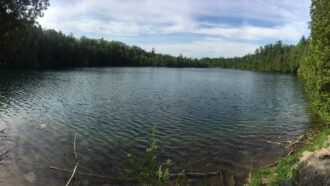 Earth
EarthCanada’s Crawford Lake seems to mark when the Anthropocene began
Mud at the bottom of this lake holds a record showing how humanity has been changing our planet. But the Anthropocene isn’t an official new epoch yet.
-
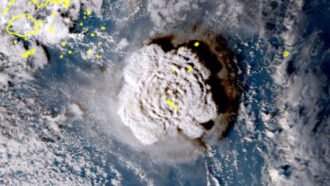 Earth
EarthA volcanic eruption sparked the highest lightning ever seen
The eruption plume spawned lightning that started 20 to 30 kilometers (some 12 to 19 miles) above sea level.
By Skyler Ware -
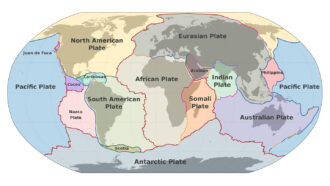 Earth
EarthScientists Say: Tectonic Plate
Tectonic plates are giant slabs of rock that make up Earth’s outer layer.
-
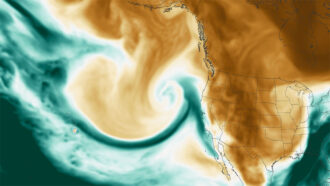 Climate
ClimateExplainer: What is an atmospheric river?
These long-traveling storm systems bring moisture to many parts of the world. Here’s what scientists are learning about them.
-
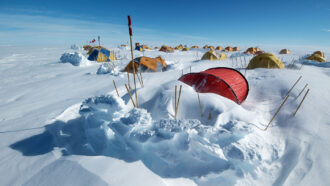 Earth
EarthUnder the ice, a hidden lake hints at its origin — and coming end
Lake Mercer may serve as a model for better understanding the birth and life of Antarctica’s hundreds of subglacial lakes.
By Douglas Fox -
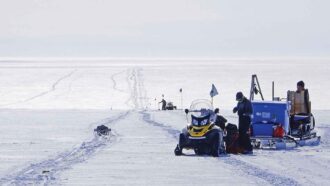 Earth
EarthA natural ‘cathedral’ lurks deep under Antarctic ice
By drilling into this cavern, scientists have opened a window into the mysterious world of hidden lakes, their occupants — and rivers that run uphill.
By Douglas Fox -
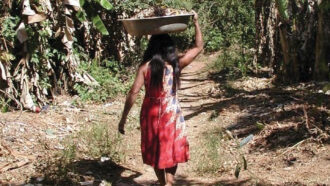 Agriculture
AgricultureNative Amazonians make rich soils — and ancient people may have too
Modern Amazonians make nutrient-rich soil from ash, food scraps and burns. The soil strongly resembles ancient “dark earth” found in the region.
By Freda Kreier -
 Tech
TechThink of this new tech as sunglasses for our windows
Keeping buildings cool can use a lot of energy. Thanks to quantum computing, engineers designed a coating to cut the warming light that enters windows.
-
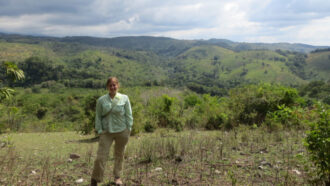 Animals
AnimalsA love of small mammals drives this scientist
Alexis Mychajliw’s science is driven by her love of animals. She now looks to tar pits and fossilized poop to understand ancient ecosystems.
-
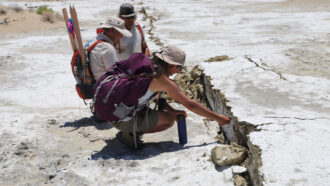 Earth
EarthScientists Say: Seismology
Seismology is the branch of science focused on seismic waves — vibrations that run through or around Earth.